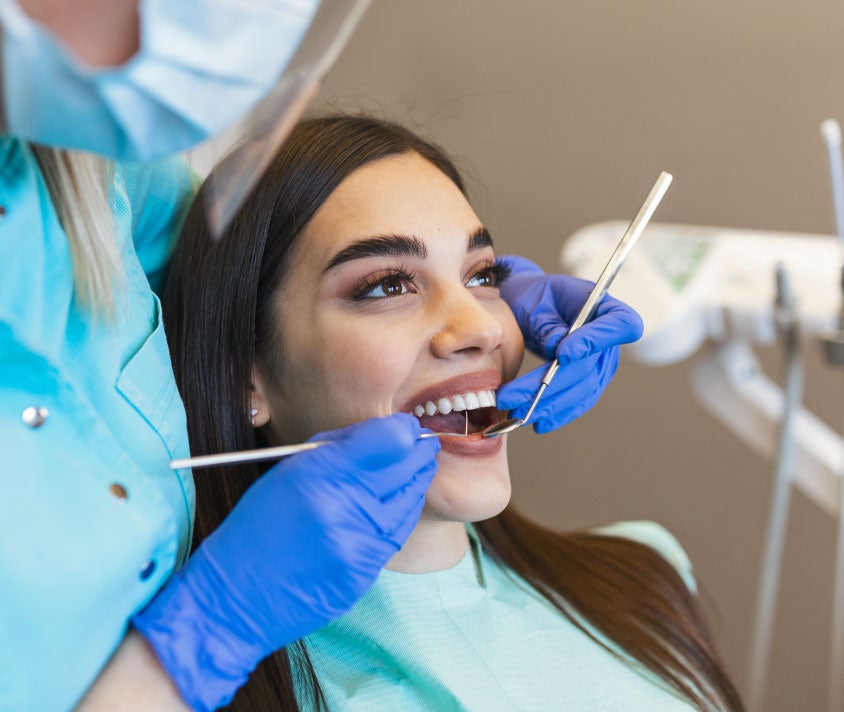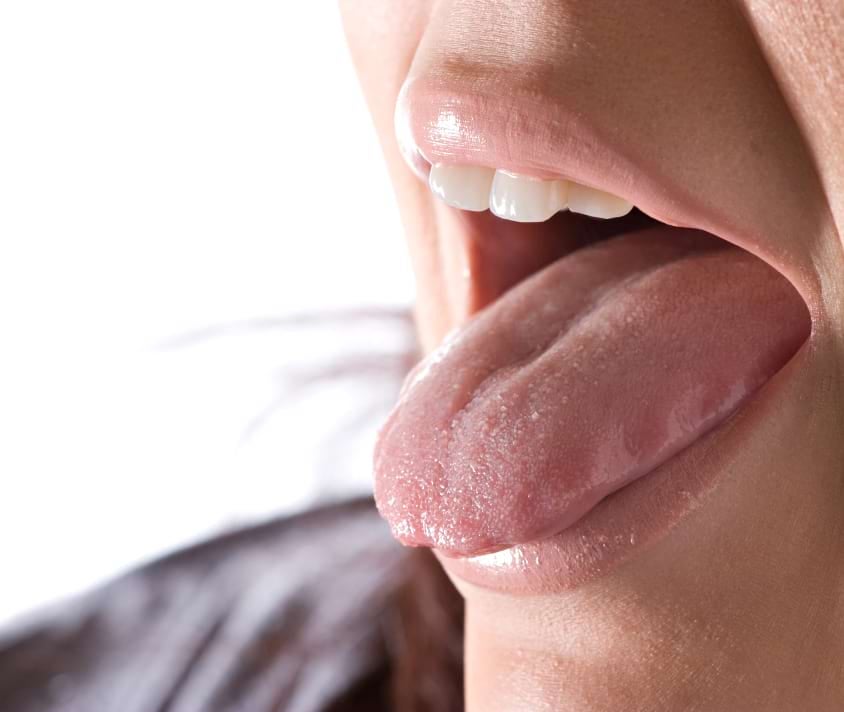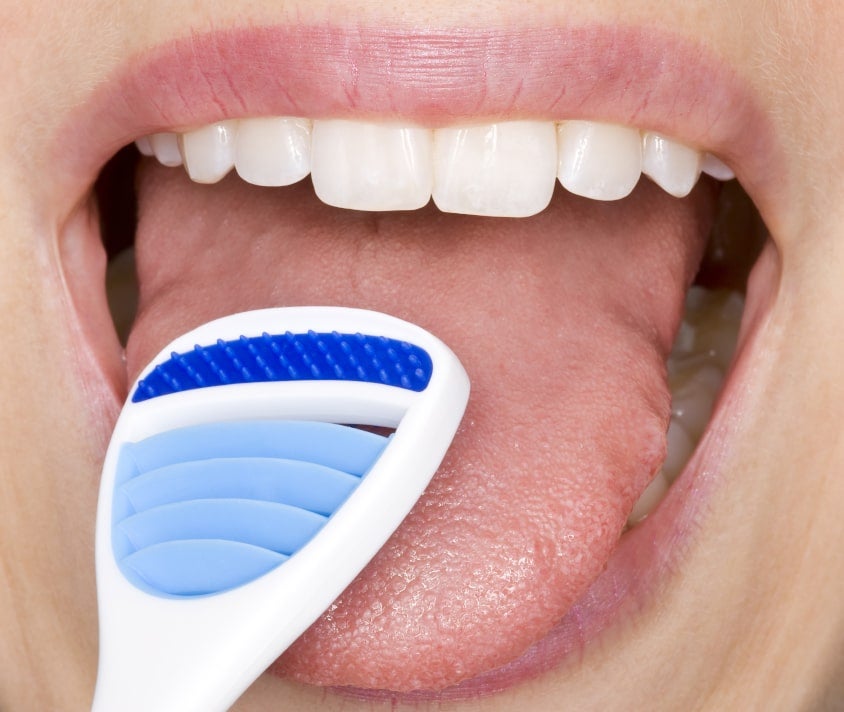This article will take you 8 minutes to read.
Mouth ulcers are not only uncomfortable, they are also often associated with severe pain. In extreme cases, they even make it nearly impossible to eat. In most cases, however, the ulcers are completely harmless and heal on their own after a few days.
What types of ulcers are there?
Mouth ulcers vary in appearance and size. They affect about 2-10% of the population, especially children and adolescents. The small white swellings or sore areas with red borders, also known as aphthae, are not to be confused with herpes and occur repeatedly. They form blisters, primarily on the tongue and gums, and produce a yellowish or white film of fibrin with a red border that the body uses to try to isolate and control the sores. The red color is an indication of increased blood flow caused by the inflammation. Raised and fluid-filled sores are also called blisters or bullae. Aphthae are the most common disease of the tongue and gums, but they rarely occur as symptoms in connection with serious diseases.
Possible causes of ulcers
Cold sores on the lip and, less commonly, canker sores caused by the herpes simplex virus are among the most well-known causes of mouth sores. But other viruses can also lead to painful sores in the mouth.
Bacterial infections can also be identified as a cause and trigger pus-filled infection pockets (abscesses) or even widespread inflammation (cellulitis) in the event of overgrowth with organisms that are already present or newly settled in the mouth.
The fungus Candida albicans is usually already present in the mouth. However, certain medications can induce explosive growth.
Injury or irritation from a broken tooth or ill-fitting dentures can also lead to the formation of blisters or ulcers. And there are foods that can irritate the oral mucosa or trigger an allergic reaction. The irritants naturally occurring in tobacco products are most likely another cause. Some of the drugs that most commonly cause mouth sores are certain chemotherapy drugs used to treat cancer, and radiation therapy, also used to fight cancer, is also a common culprit. Other causes include systemic diseases that affect the mouth along with other parts of the body. Risk factors that can promote irritation of the oral mucosa include genetic factors, certain foods, stress, lack of sleep, smoking, allergies, iron, zinc and vitamin deficiencies. Dry mouth caused by certain medical conditions also makes mouth sores more likely.
Tips for treating mouth ulcers
In most cases, the blisters in the mouth will heal within about two weeks without treatment. During this time, avoid unnecessary additional stimuli such as coarse or hot food and carbon dioxide. However, if you have a fever, blisters on the skin, eye infections, a weakened immune system, severe pain and difficulties, it is better to see a doctor.
However, as with everything to do with the mouth, optimized hygiene is essential in order to keep harmful bacteria away from irritated areas. The foundation here is brushing your teeth twice a day with toothpaste that contains fluoride if possible and a toothbrush that should not be too hard. Also, floss the spaces between your teeth and the cavities around implants every day. In addition, for mouth ulcers, we strongly recommend rinsing your mouth daily with a solution that does not contain alcohol.
Home remedies that you may already have on hand include natural helpers such as tea tree oil, aloe vera, rhubarb, calendula and chamomile extracts and baking soda. Simply mix the latter with water to form a paste and apply to the affected area. Ice cubes wrapped in a paper towel will also temporarily relieve the pain.




